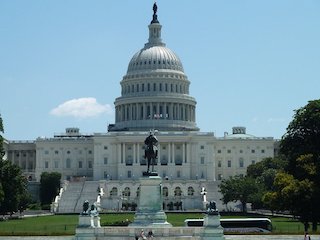John Barrasso (R-WY), ranking member of the Senate Committee on Energy and Natural Resources, and Angus King (I-ME), chair of the Senate National Parks Subcommittee, introduced legislation to increase broadband and cell service in national parks.
The Connect Our Parks Act will direct each national park to assess where broadband service is needed and develop a plan to increase access to internet and cell service. Increased cellular access inside national parks is considered a crucial component of public safety, according to the lawmakers. Broadband access has also been identified as a barrier to hiring and retaining qualified employees for the National Park Service.
“We want to make sure everyone in the park has access to life-saving emergency services,” said Barrasso. He said the bill “will provide park rangers, employees, and visitors with high-speed, reliable broadband to keep our parks safe and accessible at all times.”
“America’s National Parks provide great opportunities to enjoy nature, but when emergencies happen, visitors should have modern connections to receive help,” said King. He called the measure “a commonsense effort to improve access to emergency services, assist park rangers responding to crises, and expand growing digital services like park navigation.”
Bill co-sponsors include Cynthia Lummis (R-WY), Mike Lee (R-UT), and Cindy Hyde-Smith (R-MS). The Connect Our Parks Act specifically:
- Directs the national parks to study broadband needs within the parks including housing, administrative facilities and related structures, and campgrounds.
- For cell service, areas should be identified that would increase the public’s access to emergency services and grow the communications capabilities of park rangers.
- Requires each park to develop a plan to increase broadband and cell service based on the results of the assessment.
- Requires the plan to provide minimal disruptions to views, land, and wildlife.
- Requires each park to use public-private partnerships to install and provide the telecom service.
- Requires parks to consult with relevant stakeholders, plan in a technology-neutral way, and provide a minimum internet service speed of 100/20 Mbps.




Reader Interactions